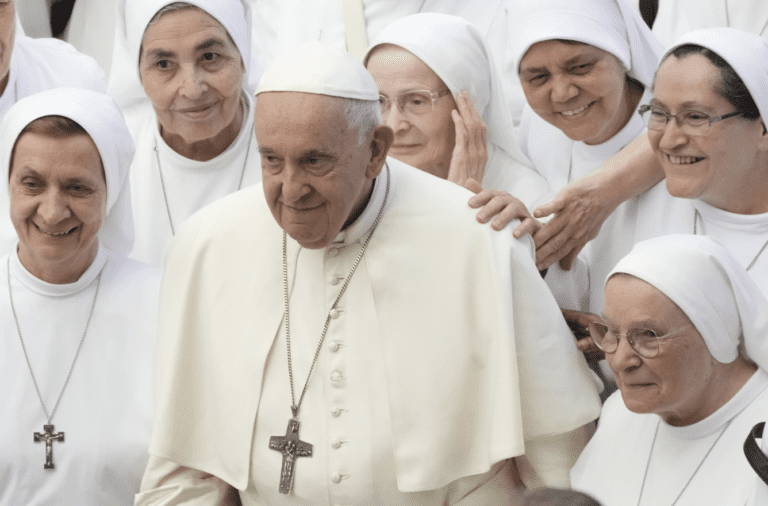Pope Francis: A Legacy of Compassion and Reform
VATICAN CITY (AP) – Pope Francis, the first pope from Latin America and a figure known for his humility and advocacy for the marginalized, died on April 14, 2025, at the age of 88. The Vatican reported that Francis suffered a cerebral stroke that led to a coma and irreversible heart failure.
A Global Mourning
Following the announcement of his passing, bells tolled in Catholic churches worldwide, from his home country of Argentina to the Philippines and throughout Rome. Cardinal Kevin Farrell announced, “At 7:35 this morning, the Bishop of Rome, Francis, returned to the home of the Father,” acknowledging the pope’s lifelong dedication to service.
Health Challenges and Final Appearance
Francis had a history of respiratory issues, including chronic lung disease, which led to his hospitalization at Gemelli Hospital in February 2025 for a serious respiratory crisis. His last public appearance occurred on Easter Sunday, just a day before his death, when he offered a blessing to thousands in St. Peter’s Square.
Responses from Leaders and the Public
His death prompted swift reactions on social media from various lawmakers, particularly from Nevada. State Senator Fabian Doñate expressed sorrow, stating, “Today, we mourn the passing of Pope Francis—our first Latin American pope. His papacy brought the Church closer to the poor, the immigrant, and the forgotten.” Other representatives echoed similar sentiments, noting his compassion and commitment to social issues.
A Transformative Papacy
Pope Francis, born Jorge Mario Bergoglio, was elected on March 13, 2013, and marked a significant shift in the Catholic Church’s approach, embracing a focus on humility and social justice. His papacy was characterized by a desire to bring the Church closer to the marginalized and to rethink fundamental economic principles in light of his critiques of capitalism and environmental degradation.
Challenges Faced
However, his tenure was not without controversy. Conservatives within the Church grew increasingly concerned with his progressive views and outreach to LGBTQ+ communities. His handling of clergy sexual abuse allegations in Chile in 2018 sparked significant criticism, highlighting the complexities of his leadership.
Pandemic Leadership
Throughout the COVID-19 pandemic, Francis led the global Catholic community from a locked-down Vatican, emphasizing solidarity and collective responsibility. He stated, “We have realized that we are on the same boat, all of us fragile and disoriented.”
Enduring Legacy
Francis’ advocacy for the poor, climate action, and a more inclusive church resonated with many. He championed various reforms, such as easing annulment processes, addressing sexual abuse within the clergy, and enhancing the roles of women in the church, although he stopped short of ordaining them.
Reforming Church Dynamics
His tenure saw the inclusion of women in significant decision-making roles and allowed them to serve as lectors and acolytes. Sister Nathalie Becquart, appointed to a high-ranking Vatican position, noted that Francis envisioned a church built on cooperation between men and women.
A Call for Justice and Compassion
As the world processes the loss of Pope Francis, many reflect on his commitment to social justice and the voiceless. The Archdiocese of Las Vegas remarked on his impact, noting he was “a voice for the voiceless, a champion of the marginalized.” His passing will initiate a mourning period, followed by a conclave to elect his successor, continuing the legacy of his transformative papacy.


